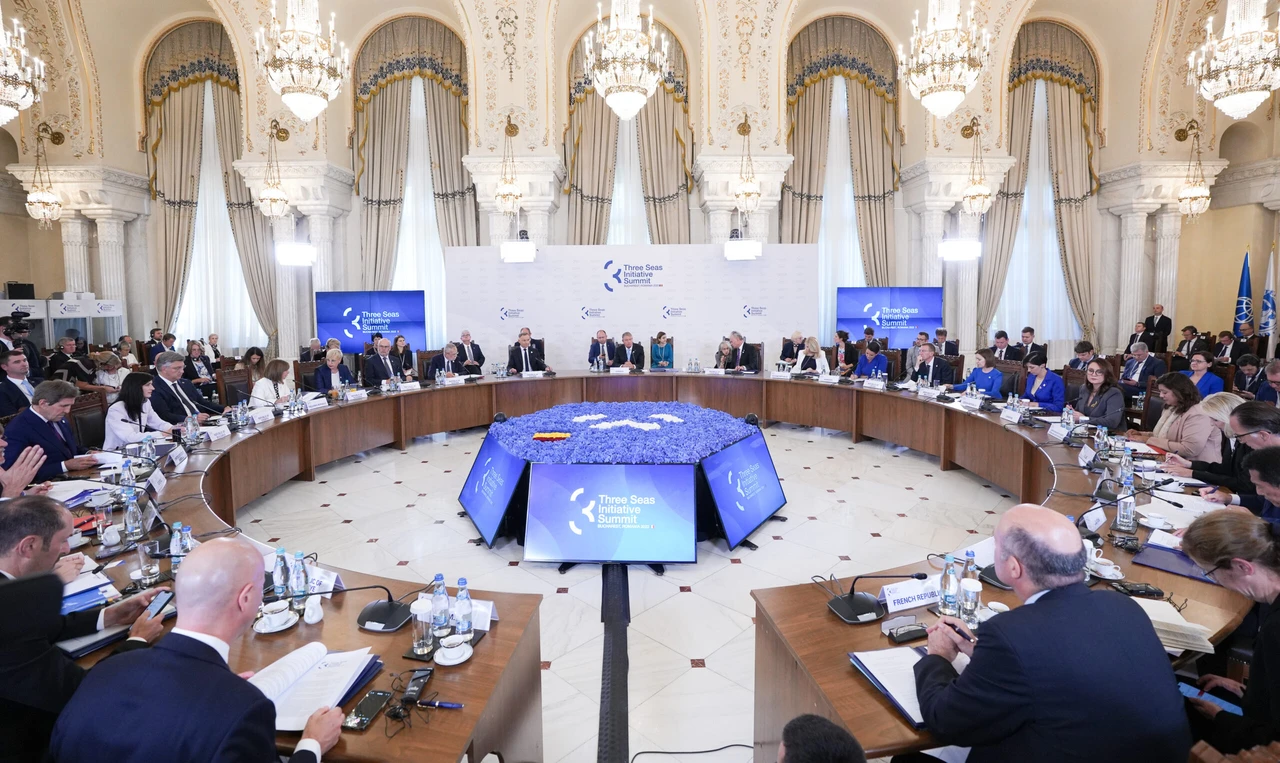Canada’s Liberal Party secures victory as Trump tensions dominate election
 Canada's Prime Minister and Liberal Party leader Mark Carney speaks to supporters at a victory party in Ottawa, Ontario on April 29, 2025. (AFP Photo)
Canada's Prime Minister and Liberal Party leader Mark Carney speaks to supporters at a victory party in Ottawa, Ontario on April 29, 2025. (AFP Photo)
Prime Minister Mark Carney led Canada’s Liberal Party to victory in Monday’s national elections, securing an unprecedented fourth consecutive term for the party amid escalating tensions with the United States.
The election, heavily influenced by U.S. President Donald Trump’s trade war threats and suggestions about annexing Canada, represents a dramatic turnaround for the Liberals, who had been trailing significantly in polls earlier this year.
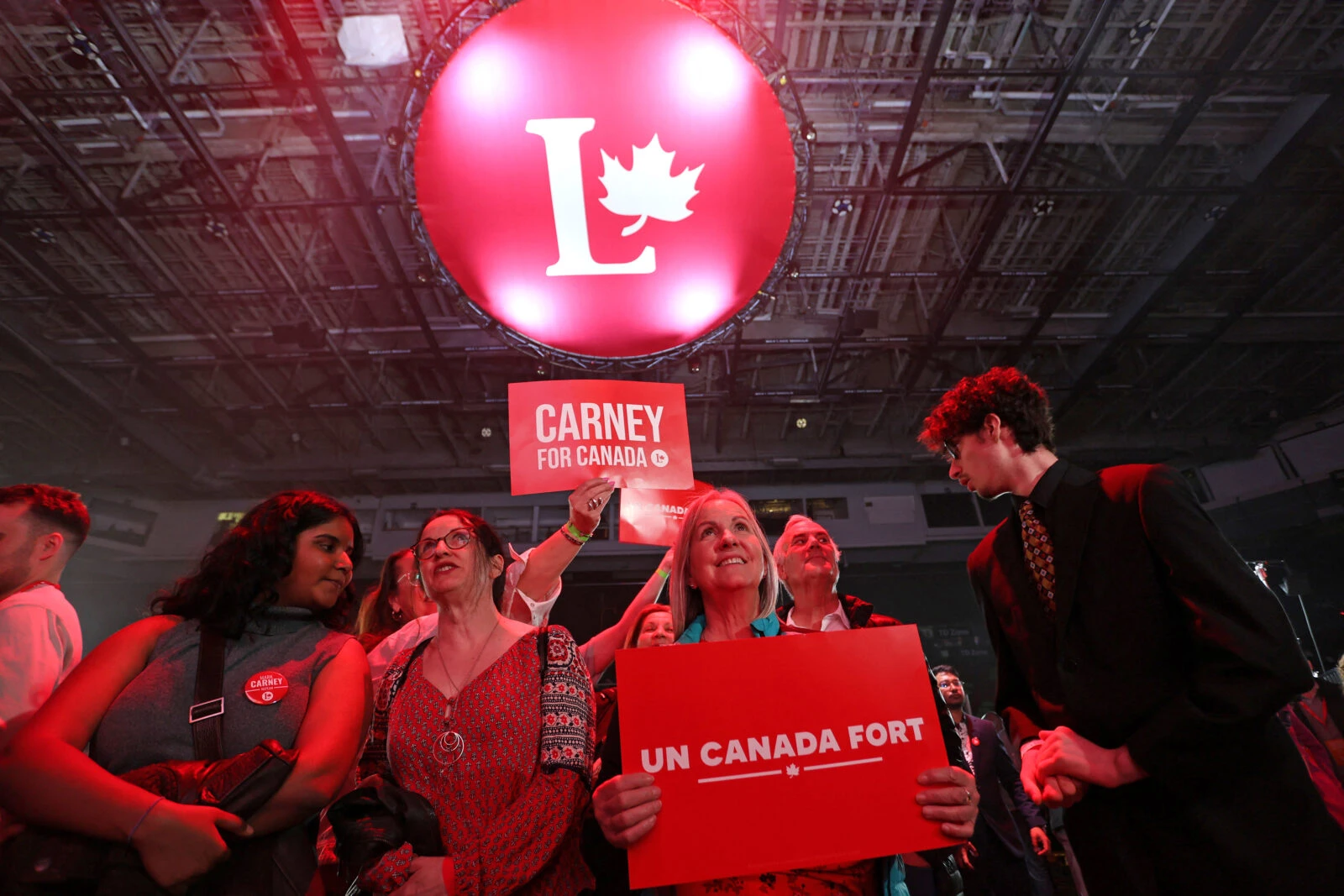
Carney frames victory as defense against American threats
“As I’ve been warning for months, America wants our land, our resources, our water, our country,” Carney declared in his victory speech. “President Trump is trying to break us so America can own us. That will never–that–will never, ever happen.”
Carney, a former central banker who took office in March without previously holding elected office, framed the victory as a pivotal moment in Canadian history, comparable to challenges faced during World War II and the end of the Cold War.
“Our old relationship with the United States, a relationship based on steadily increasing integration, is over,” Carney told supporters. “The system of open global trade, anchored by the United States—a system that Canada has relied on since the Second World War, a system that, while not perfect, has helped deliver prosperity for our country for decades—is over.”
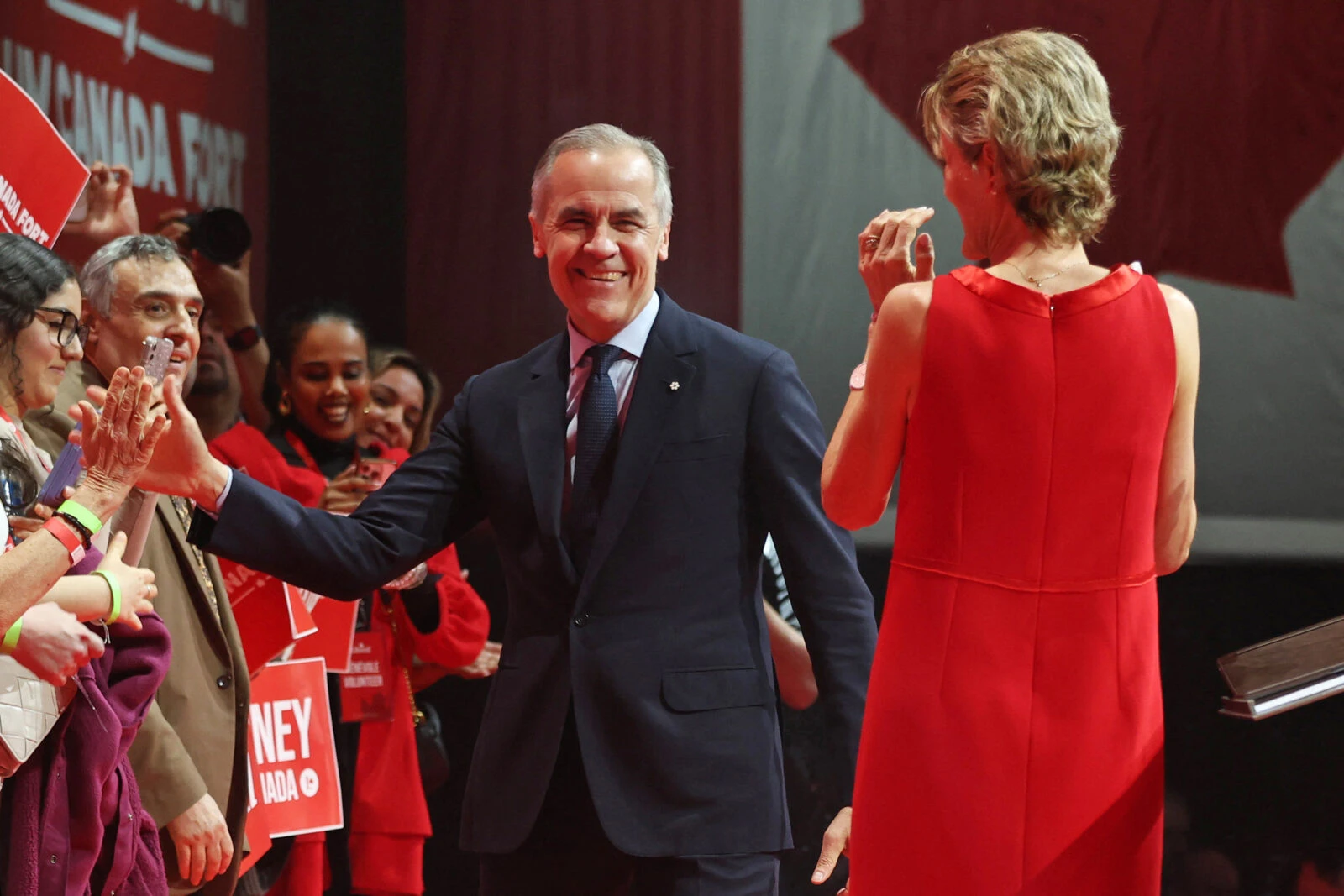
Liberal surge overturns early Conservative lead
With votes still being counted late Monday, the Liberals were projected to win at least 165 seats in the 343-member House of Commons, according to the CBC. Conservative Party leader Pierre Poilievre’s party was on track for approximately 147 seats.
It remains unclear whether Carney will secure enough seats for a majority government or need to form a coalition with a smaller party.
The Liberals have operated without a parliamentary majority since 2015, relying on support from the left-leaning New Democratic Party following their narrow 2021 victory.
The election outcome reflects a remarkable reversal for the Liberals, who trailed the Conservatives by more than 20 points in January polls. Political analysts attribute this dramatic shift to Trump’s return to the White House, which appears to have sparked patriotic sentiment among Canadian voters.
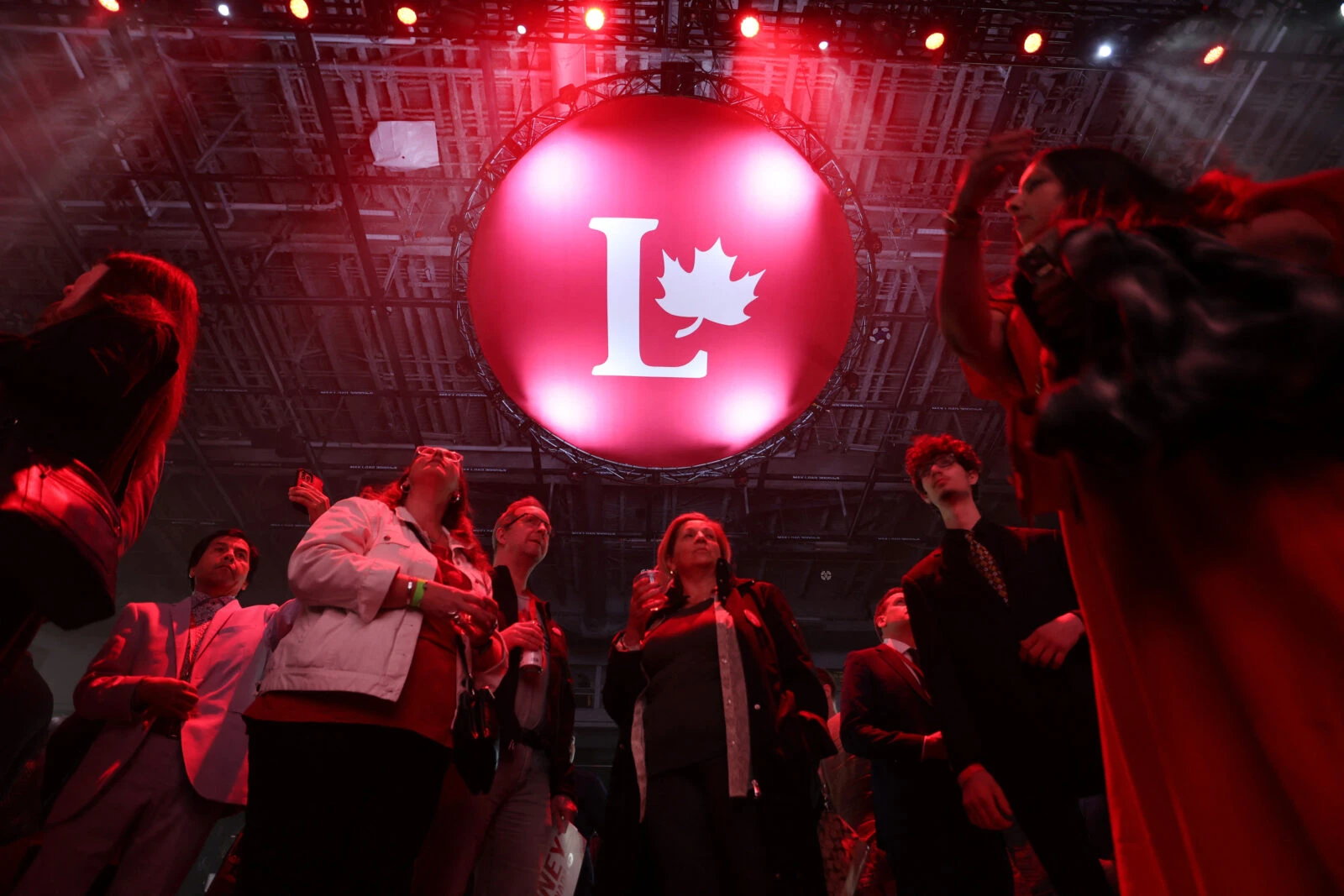
Opposition pledges cooperation on trade and sovereignty issues
Poilievre acknowledged the defeat in his concession speech, pledging that his party would cooperate with the government on “defending Canada’s interests” and “getting a new trade deal that puts these tariffs behind us while protecting our sovereignty.”
The specter of U.S. pressure loomed large throughout the campaign. On election day, Trump reiterated his annexation rhetoric on Truth Social, suggesting Canadians could benefit from becoming “the cherished 51st state of the United States of America.”
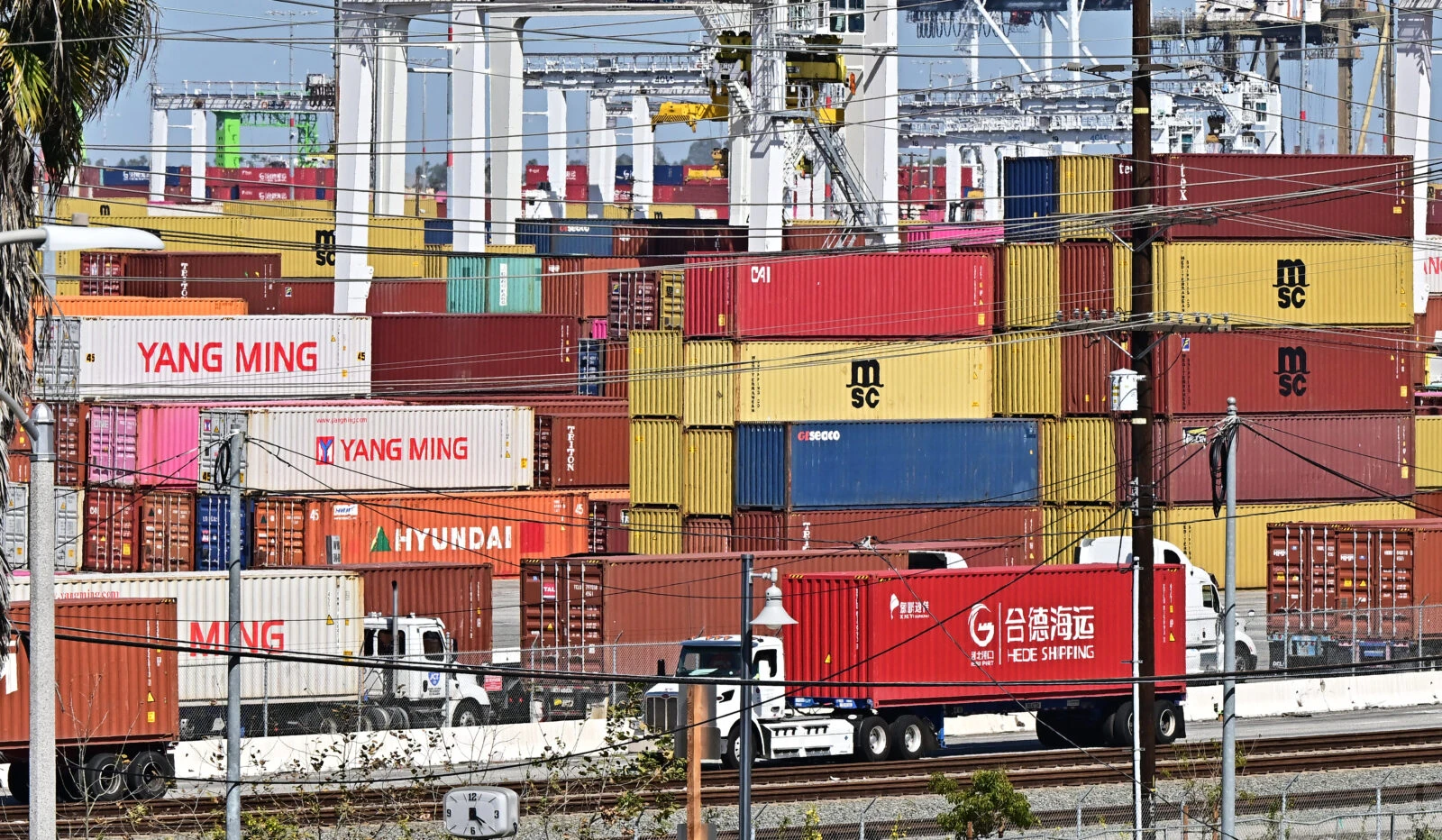
Record turnout as Canadians respond to ‘hinge moment’ in history
Nearly 29 million Canadians were eligible to vote, with a record 7.3 million casting ballots in advance.
Carney, who previously led the central banks of both Canada and the United Kingdom, campaigned heavily on his financial expertise and took a forceful stance against U.S. trade threats.
In his last campaign speech Sunday, he called the deterioration of U.S.-Canada relations “a tragedy” that is “still in play.”
The prime minister’s victory speech emphasized his commitment to strengthening Canada amid these challenges, promising to “stand up for Canada” and “build Canada strong” in the face of what he called “the American betrayal.”

